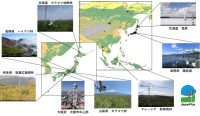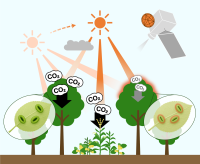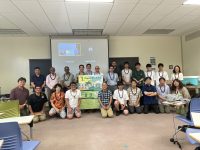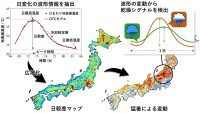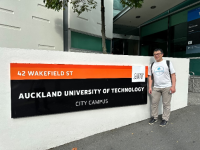The 4th GEO Workshop will be held on May 23,24 (25: Excursion), 2026. The registration form is now available. See more detail: https://ceres.chiba-u.jp/lab_wp/ichii/workshops_4th_geo_2026
JapanFlux2024: Asia’s first large-scale baseline dataset revealing how terrestrial ecosystems absorb CO₂. アジア地域初! 陸域生態系によるCO₂吸収動態を明らかにする大規模基盤データセット“JapanFlux2024”を構築 see detail (CEReS web in Japanese): https://ceres.chiba-u.jp/5589/
Yuhei Yamamoto, Assistant Professor of our lab, and Prof. Ichii issued press release titled below. Please take a look! Visualizing plant photosynthesis every 30 minutes across East Asia with Himawari-8/9 weather satellites see detail (CEReS web in Japanese): https://ceres.chiba-u.jp/5494/
The 1st Expert Workshop on Advancing the International Constellation of Geostationary Satellites for Terrestrial Monitoring” was held as the first in-person meeting of this project. A report on the meeting was published in the newsletter of the Center for Environmental Remote Sensing Research (CEReS) of Chiba University. For details, please see pages 1 and 2 of the CEReS Newsletter (August 2023 issue).
The Role of Universities to Achieve Carbon Neutrality #3 Predicting Future CO2 Absorption and Emissions in Terrestrial Ecosystems: International Geostationary Meteorological Satellite Network for Accurate Estimation https://www.cn.chiba-u.jp/en/story_e230704/
Research results on vegetation drought stress monitoring using diurnal changes in surface temperature estimated by Himawari No. 8 have been published in the journal “Remote Sensing of Environnment. Yamamoto Y., K. Ichii, Y. Ryu, M. Kang, S. Maruyama, S.J. Kim, J.R. Cleverly (2023) Detection of vegetation drying signals using diurnal variation of land surface temperature: Application to the 2018 East Asia heatwave. Remote Sensing of Environment, 291, 113672, https://doi.org/10.1016/j.rse.2023.113572. Click here for the paper 2023/05/16 Postscript: Also published in Chiba University Press Release. Click here for details.
As part of this project, students from Chiba University participated and made presentations at the Academic Conference of the Remote Sensing Society of Japan. Students’ presentations were published in the newsletter of the Center for Environmental Remote Sensing Research (CEReS) of Chiba University. For details, please see pages 3 and 4 of the CEReS Newsletter (December 2022 issue).
As part of this project, Prof. Ichii and Assist. Prof. Yamamoto (Chiba University) participated in the AsiaFlux Conference 2022. The meeting was featured in the newsletter of the Center for Environmental Remote Sensing (CEReS), Chiba University. For details, please see pages 1 and 2 of the CEReS Newsletter (October 2022 issue).
As part of this project, Prof. Ichii and Assist. Prof. Yamamoto (Chiba University) participated in the AsiaFlux Conference 2022. The meeting was featured in the newsletter of the Center for Environmental Remote Sensing (CEReS), Chiba University. For details, please see pages 1 and 2 of the CEReS Newsletter (October 2022 issue).


